#ChemEngCatchUp Episode 13 – Prof Kostas Theodoropoulos
Meet the Department 27 January 2017
Hello all. Thanks for coming back for another episode of #ChemEngCatchUp. Today we meet with Prof Kostas Theodoropoulos from the Process Development and Integration research group. Kostas is working on some crucial and fascinating research so without further ado, let’s learn more about him:
Hi Kostas. Thanks so much for talking to us. Can you start by describing your research, for the layman, in ten sentences or less?
https://www.youtube.com/watch?v=WcHw2ec-eKo
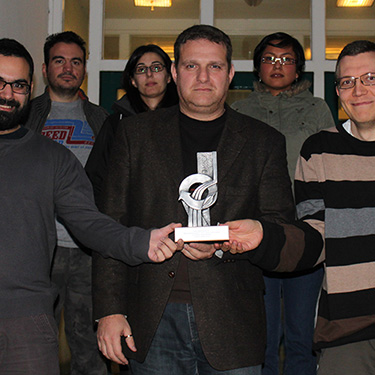
So my research has two distinct aspects which we then try to combine. The first bit is on industrial biotechnology. So we try to use waste, right, or other types of naturally occurring biomass, to produce added value chemicals or other useful products like plastics. So, we try to do that through biotechnology, through fermentation technology, we put things together, they react, they take quite some time, and hopefully at the end we produce something interesting. But more importantly, because we’re chemical engineers, we want to do it bigger, better, and faster.
The second aspect has to do with computational work. So all these nice processes, we try to put them together, write some very complicated models about them, and run them in the computer to try and predict things – try to optimise things and make them better, and also control things. On top of that, because these are complex processes and they require complex models, we find fancy ways of making these models simpler, faster, and more efficient, and then we put two and two together. We run the models and we run the processes side by side, and the two of them are hopefully achieving the right results.
And how can your research benefit the public?
Right, that’s quite easy. These days there are all these debates about how petroleum resources are limited and CO2 emissions are harmful and can lead to global warming, so we try to make things more ‘green’. So all the added value chemicals and materials that we try to produce, like I said, are from waste or from biomass, so they substitute, essentially, the petroleum sources. So we get less reliant on crude oil. And also, essentially they are carbon neutral – either there are no CO2 emissions or the CO2 emissions are already in the biomass, absorbed from CO2 in the atmosphere. They are deemed as carbon neutral. So essentially the public can benefit from getting cheap and abandoned materials and chemicals from green sources.
Brilliant, thanks Kostas! So could you tell us how you first got interested in your research area?
https://www.youtube.com/watch?v=XYWLPVXhQFM
Actually, my first degree was not in chemical engineering it was in mathematics. And then at the end of it I wanted something more applicable so I researched into engineering, and chemical engineering is the engineering bit that does things more flexibly and has a wider range of applications. So I got interested in that.
And then since then I’m trying to put these together, so put more mathematics in engineering and combine experiments and maths together to make something useful. So I guess that’s it.
And going back a bit further, can you tell us who or what first inspired your interest in science and engineering?
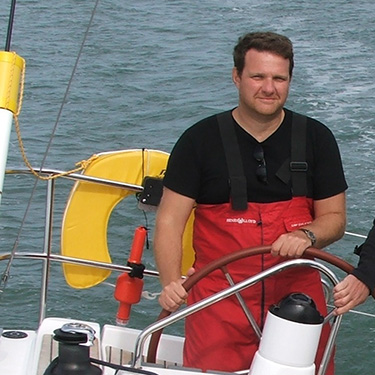
There was not one person in particular. Actually my background, my family, was more interested in humanities. So I would say nobody in my immediate background.
I was always interested in maths and again, through my maths involvement, I got into the habit of looking for applications. And like I said, the more interesting applications were in the chemical engineering field. So I could not attribute this interest to anyone in particular, it was more a path leading from pure sciences to more applied sciences.
Moving away from work for a question, then, can you tell us about your other interests? What do you get up to in your spare time?
Right, so, clearly these days there’s not much time with work and with family and everything else, but I like to do a few things. I still try to play a bit of basketball on the weekends, when time permits. Cycling is a good pastime, so I try to put a few hundreds of miles in if I can. Although clearly not with the weather at the moment.
Photography is something I like very much, and I’ve been looking at your camera while you’re filming! In the older film days I used to have my own dark room and everything else, but now everything is computerised.
Then there are seasonal things like skiing and sailing, but again, less and less because time is getting more and more precious these days.
And how does being here in Manchester help your work and research?
https://www.youtube.com/watch?v=hi1m1oUkWik
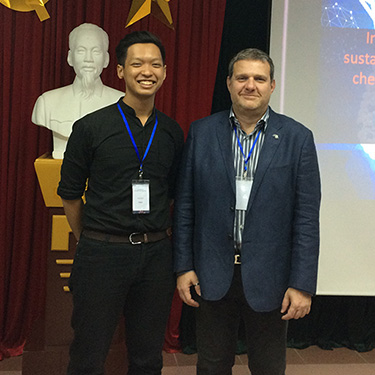
Well Manchester is a great place for research. The main thing you need to drive your research is to have great research students and research associates, and Manchester can provide that. It’s a place of global interest, it attracts the best people from all over the world, and that’s the first thing you need to drive your research forward. So, it’s very important.
The other thing is that you can have many interesting national and international collaborations. My research is by nature multidisciplinary, so being able to find the right people for the right components and particular tasks is very important. Being in Manchester is always a plus for that, because people are quite keen to work with Manchester academics.
Thanks, Kostas. That’s great to hear. And it was fascinating to hear about your research! Readers, pleases head over to the website to hear more about chemical engineering at UoM. And keep coming back to the blog, we have more great stuff coming for you soon. Thanks for reading.
Chemical EngineeringIndustrial BiotechnlogyResearchThe University of Manchester

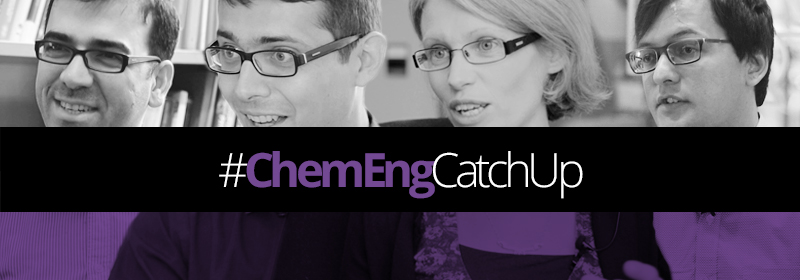
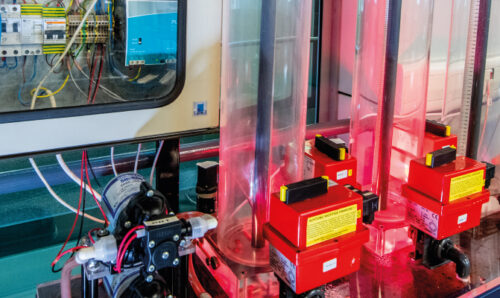


Leave a Reply